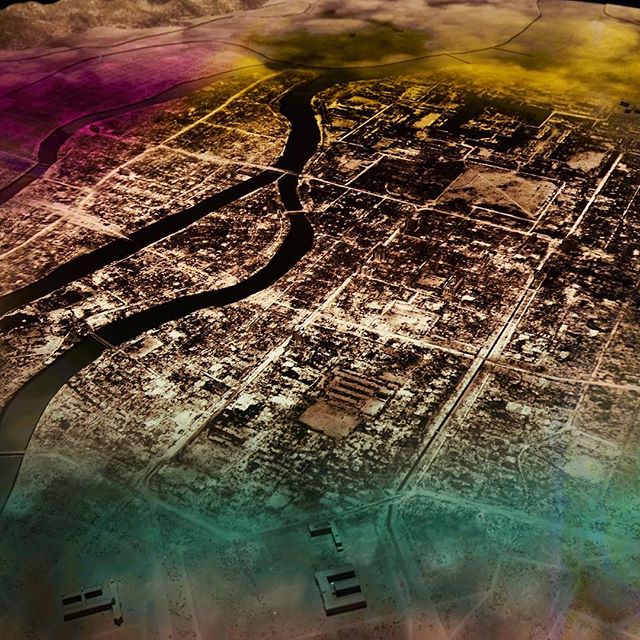I’m staying in a rickety long-term occupancy hotel in Montreal, in a room with walls painted too many times, the stink of tobacco, and obscure violence done to the electrical outlets. These streets are filthy in the way of American cities: piles of trash, cigarette butts and a sticky residue of beer on the sidewalks.
Recently I spent a week in Japan, a country of few trashcans and yet spotless public spaces. People carry their waste with them all day rather than toss it in the street. A discipline that is perhaps born out of a willingness to internalize rules, with many self-reinforcing cues, penalties and rewards.
Of the rituals in Japanese public life we can count the visit of children to the Hiroshima Peace Memorial Museum. Tour leaders organize their charges, dressed in dark trousers and skirts and white shirts and red or yellow caps, in neat ranks on the plaza, or sheltered under the raised concrete shell of Kenzo Tange’s famous building. The children sing songs of mourning and take photos in front of the ribs of the dome of the Hall of Promotion, ground zero for the nuclear blast, which bears a plaque stating “The ruins shall be preserved forever,” apparently unaware of the irony.
Inside the museum, we perform venerations to objects of memory in photographic and virtual form. We crowd around images of clocks stopped at 8:15, mushroom clouds, blast shadows, and atomic wind.
I spend most of my time watching an animation of the descent of Little Boy. The projection plays out upon a topography of ruin, the visitation of the bomb in long zoom, riding down into Hiroshima like Dr. Strangelove, the shattering of the world in technicolor, fading, as clouds lift, to a black and white aerial photo of a destroyed city.
Many of these photos are sourced from the US military. These images of Hiroshima’s destruction are a piece of victor’s justice, and it seems to me that they impart seemingly contradictory lessons: both of the innocence of civilians killed, and a warning against the consequences of disobedience.
